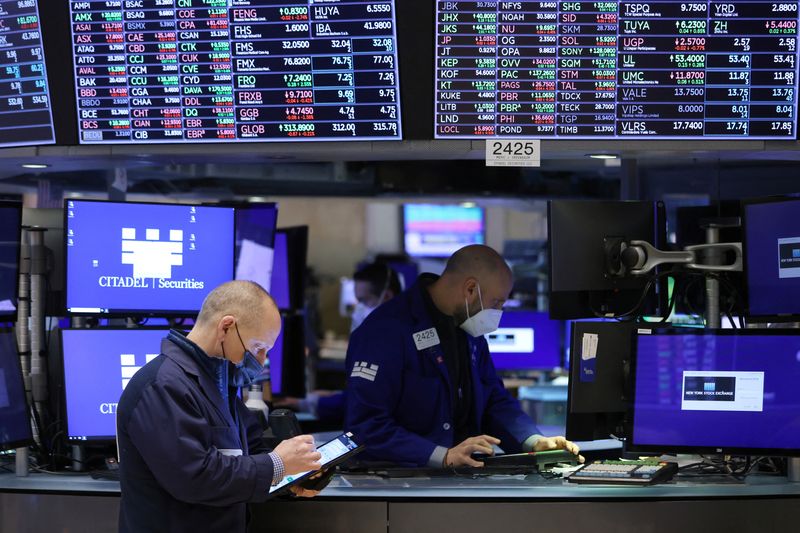ASX futures were pointing down 13 points or 0.2% to 7,246 this morning, but it wasn’t doom and gloom on Wall Street overnight.
US shares rallied as earnings guidance predicted a strong season, against the backdrop of expectations for a more dovish approach to rates from the Federal Reserve.
Investors were instead puzzling over the emerging issue of a Chinese slowdown, about which more later.
US markets take a breather ... for now
At the close of trade, the Dow Jones index was up 76 points or 0.2%, the S&P 500 index moved 0.4% and the Nasdaq index gained 131 points or 0.9%.
Tesla (NASDAQ:TSLA) was up 3.2% on news it has built its first Cybertruck, after a lag of two years, while notional competitor Ford Motor (NYSE:F) shares took a 5.9% dive after it cut the price of its electric F-150 Lightning trucks.
Apple (NASDAQ:AAPL) was up 1.7% after a good report card from Morgan Stanley (NYSE:NYSE:MS) that raised its target price.
And the box office still matters – the new ‘Mission: Impossible’ film’s lacklustre performance saw shares in Paramount Global tumble 3.8%.
European sharemarkets fell yesterday on the back of weak economic data from China, with luxury brands such as Richemont (-10.4%), LVMH, Hermes and Salvatore Ferragamo taking the biggest hit.
On a sector basis, the personal and household goods index lost the most, dropping 2.6%.
The continent-wide FTSEurofirst 300 index slid 0.6%, while the UK FTSE 100 index lost 0.4% with shares of industrial miners down by 2.6%.
China slowdown
Data out of China this week shows that consumer spending and business confidence are in trouble.
There was momentum earlier in the year as the economy bounced back following late and harsh lockdowns in large cities, but that seems to have run out of puff.
While the US remains very exposed to any Chinese economic pain, Treasury secretary Janet Yellen waved away the possibility that the slowdown in China would cause a US recession:
“Many countries do depend on strong Chinese growth to promote growth in their own economies, particularly countries in Asia, and slow growth in China can have some negative spillovers for the United States.
“Growth has slowed but our labour market continues to be quite strong. I don’t expect a recession.”
Currencies, crude and commodities
Global currencies were mixed against the US dollar overnight.
The Euro fell from US$1.1248 to US$1.1203 and was near US$1.1235 at the US close, while our dollar rose from 67.88 US cents to 68.28 US cents and was near 68.15 US cents at the end of yesterday.
The Yen dipped from 138.01 per US dollar to JPY139.38 and was near JPY138.70 at the US close.
The weak Chinese data affected global oil prices in the world’s second-biggest consumer of the commodity – they dropped by 1.7% yesterday.
A partial restart of halted Libyan output also pressured prices.
Brent crude fell by US$1.37 or 1.7% to US$78.50 a barrel, while US Nymex crude fell US$1.27 or 1.7% to US$74.15 a barrel.
The Chinese figures affected base metal prices too, which crashed on Monday. Copper futures fell by 2.3%, while aluminium futures slid 1.3%.
What’s happening in small caps?
The S&P/ASX Small Ordinaries closed at 2,891.23 yesterday, down 0.42% on the previous day.
Making news this morning, which you can read more about throughout the day with Proactive are:
